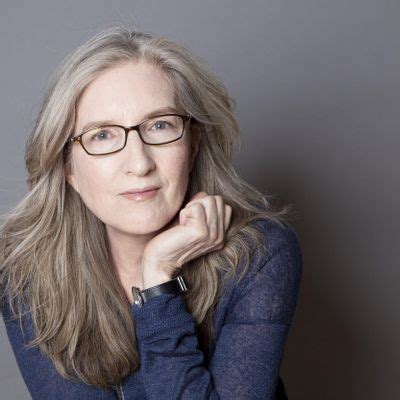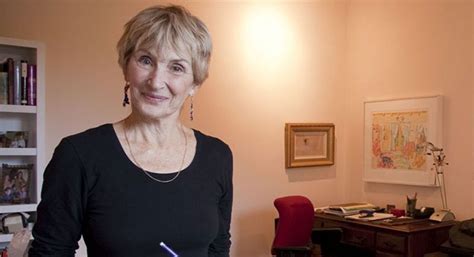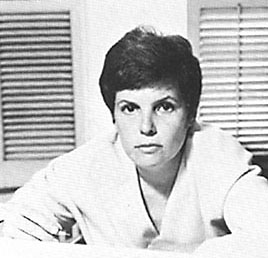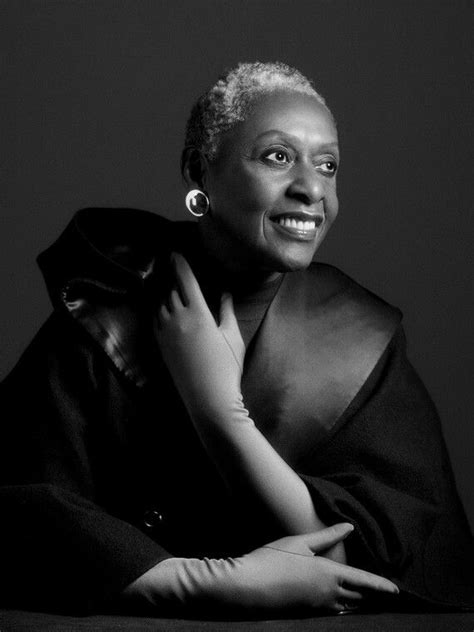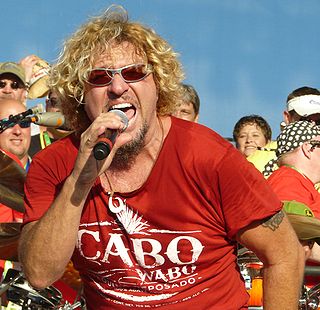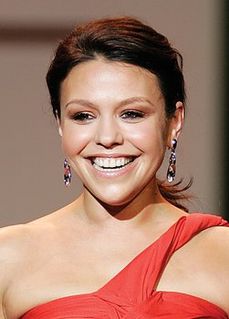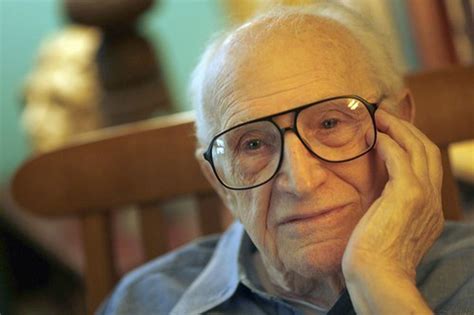A Quote by Luanne Rice
My mother painted and wrote. She always had a painting in progress on an easel in the kitchen, so our house always smelled like oil paint. At night, she wrote after she'd put my sisters and me to bed, and the sound of her typing was our lullaby.
Related Quotes
She didn't care anymore... and she got no pleasure from the work she did, but she did it. Everything bored her. She found that when she didn't have a notebook it was hard for her to think. The thoughts came slowly, as though they had to squeeze through a tiny door to get to her, whereas when she wrote, they flowed out faster than she could put them down. She sat very stupidly with a blank mind until finall 'I feel different' came slowly to her mind. Yes, she thought, after a long pause. And then, after more time, 'Mean, I feel mean.
I was the first person that had been so kind to Iman Abdulmajid. As time went on, and she became successful, signed with an agency, when she had to make big decisions, she wouldn't always talk to an agent, she'd ask me. I'd give her good advice and she'd be on her way. When I had ideas to do things like the Black Girls Coalition, I would always talk to her, she always loved my ideas. She trusts me.
No, books. She would have maybe twenty going at a time, lying all over our house--on the kitchen table, by her bed, the bathroom, our car, her bags, a little stack at the edge of each stair. And she'd use anything she could find for a bookmark. My missing sock, an apple core, her reading glasses, another book, a fork.
After my mother died, I learned that she'd had a scholarship to the University of Nebraska, but - in kind of a tradition that females don't do things like that - her father prevented her from going. She always said that she wasn't allowed to go to college, but until she died, I never knew that she'd had this scholarship.
I read a lot by female psychoanalyst Lou Andreas-Salomé, who wrote prominent biographies of Nietzsche, Rilke, and Freud because she studied with all of them. She had this unbelievable insight into contemporary psychoanalysis. What is so interesting is that she wrote her life, and she knew that her life would be about these men, and it didn't stop her from leading an incredibly successful academic career. But her strange self-awareness that she was going to bookmark these men's lives is really interesting to me.
I was always a person on my mother's hip in the kitchen. My mom really wanted her kids at her side as much as possible, and she worked in restaurants for over fifty years. And my grandfather had ten children, and he grew and prepared most of the food. My grandmother, on my mother's side, was the family seamstress and the baker. So my mom, the eldest child, was always in the kitchen with my grandpa and I was always in the production and restaurant kitchens and our own kitchen with my mom. And it's just something that has always spoken to me.
She wrote poetry constantly; that was her "work". She was a slow bleeder and she slaved over it for long, exhausting hours, and many a middle of a night I could hear her creaking around the dead house with a pen in one hand, a clipboard and a flashlight in the other, refining her poems, jotting down the lines of a conceit. Writing never came easy for her; it gave her calluses. She never courted the muses, she wrestled them, mauled them all over the house and came up, after weeks of peripatetic labor, with a slim Spencerian sonnet, fourteen lines of imagistic jabberwocky.
